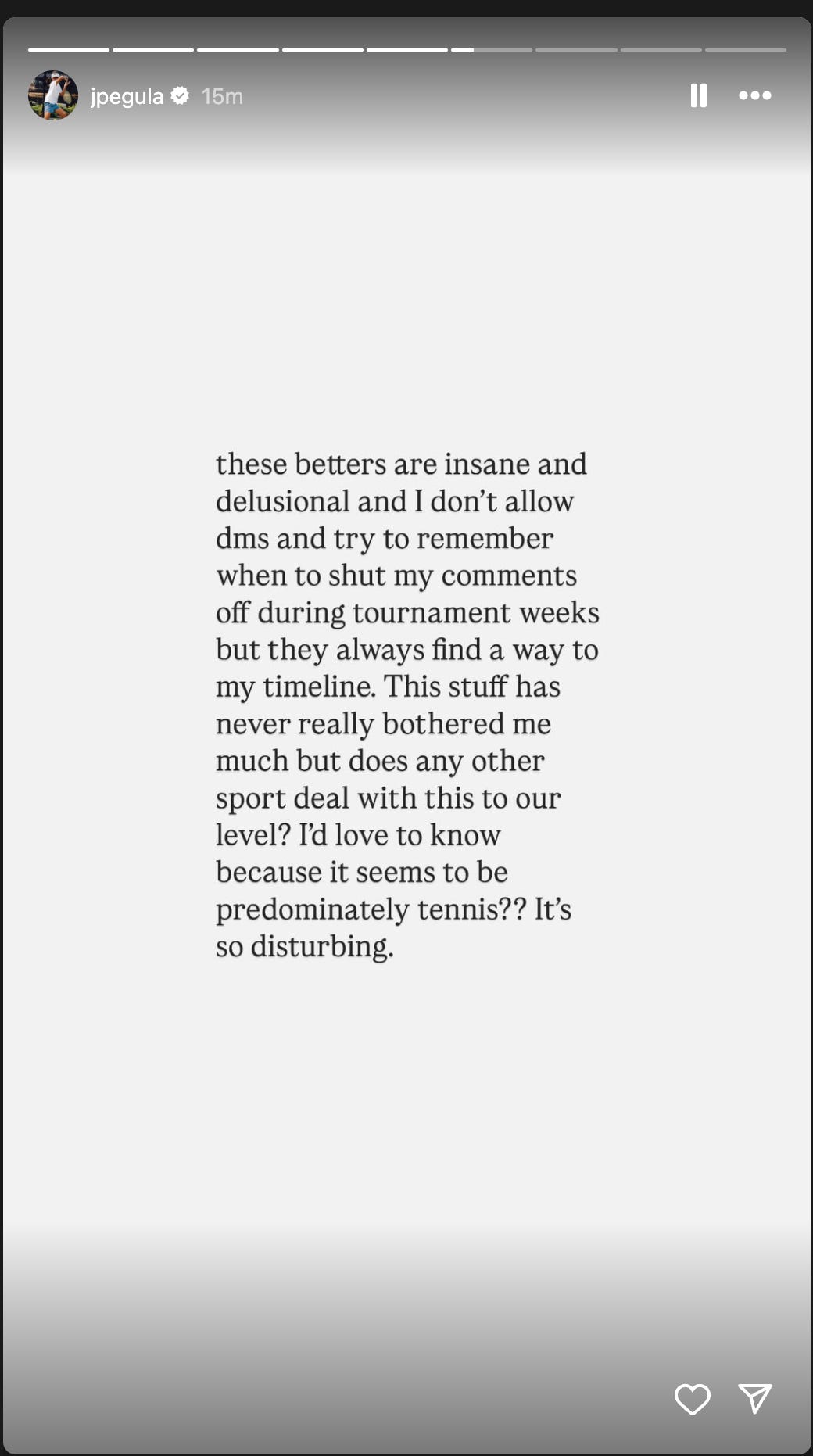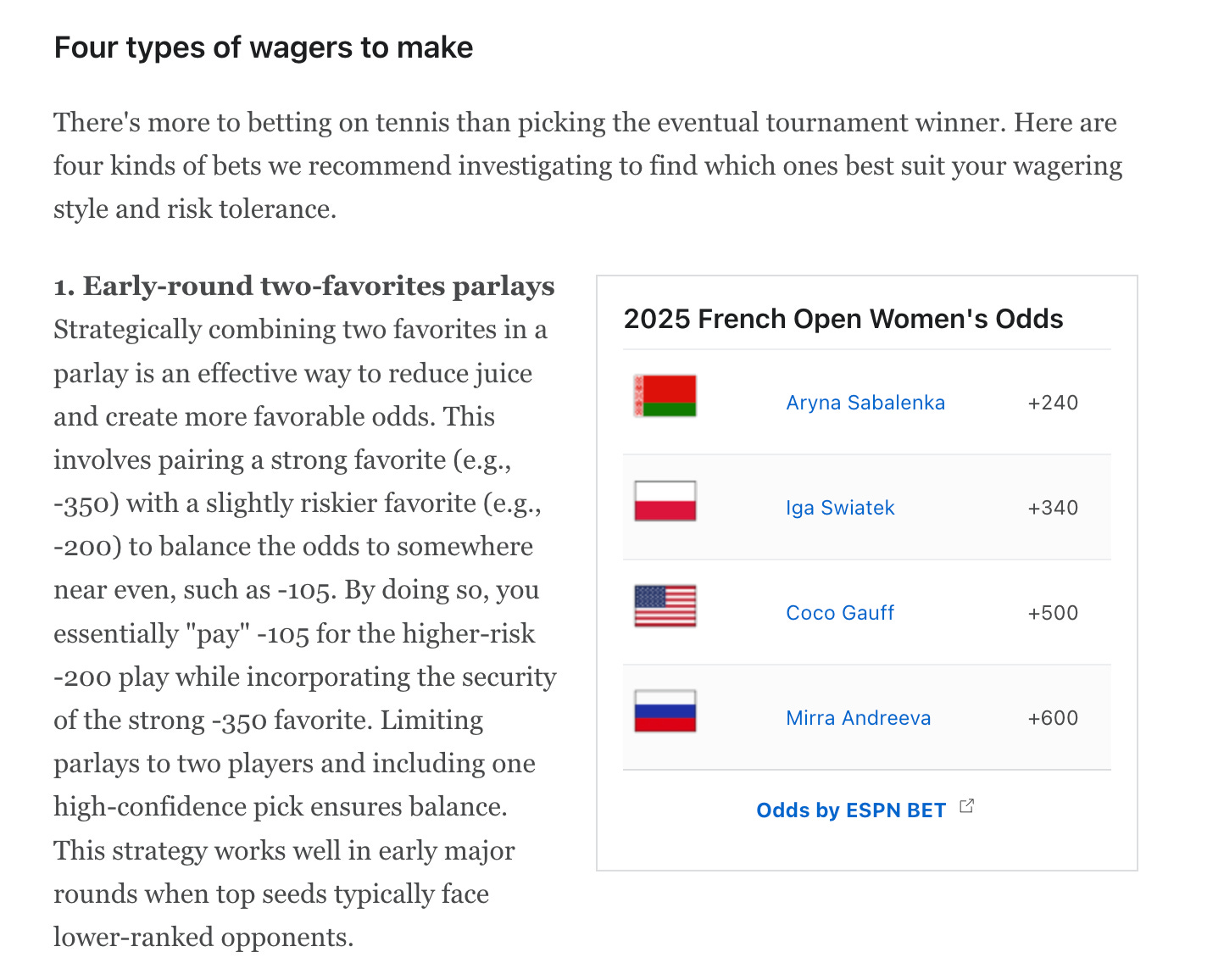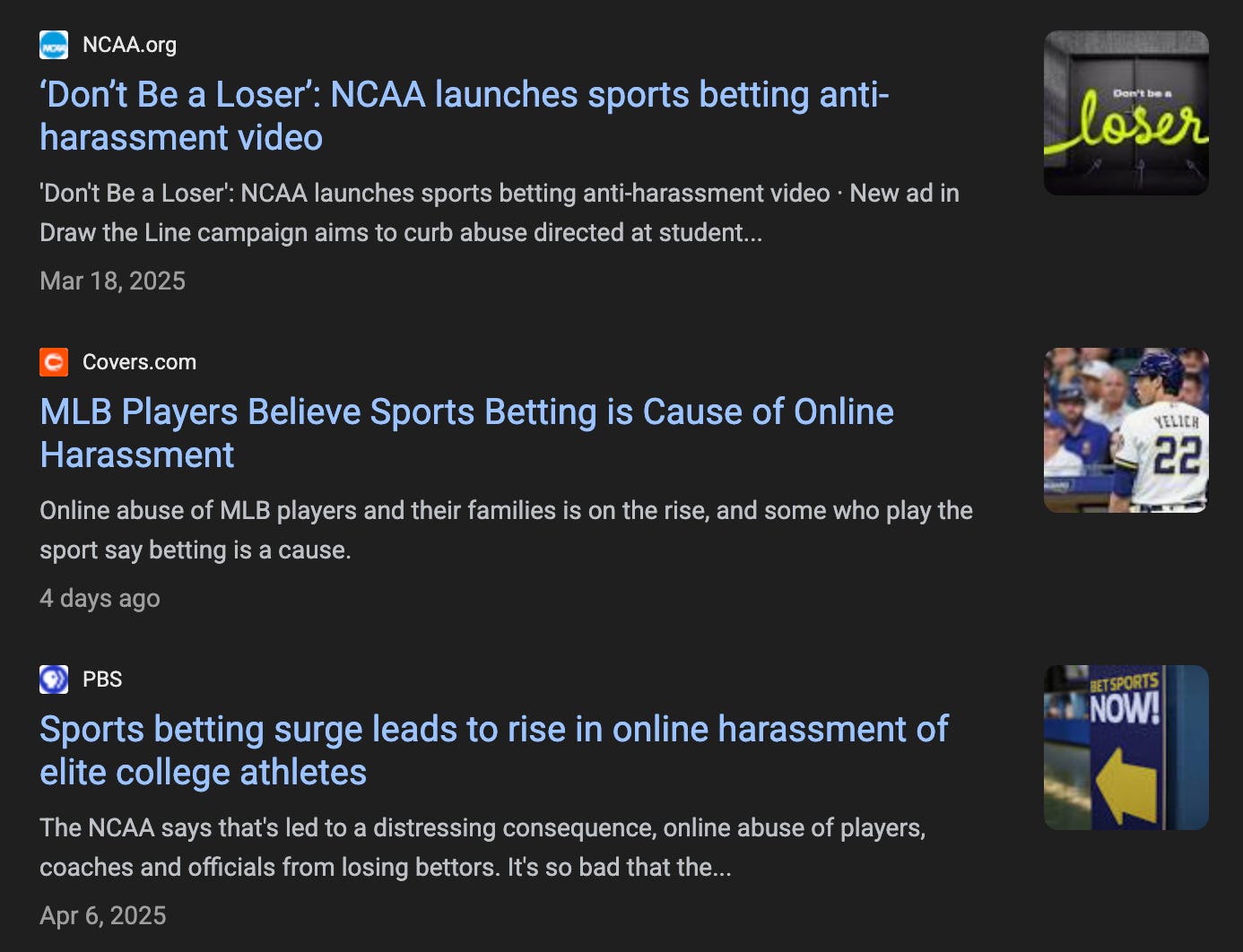Sports betting continues to cause harassment in tennis
How gambling is causing online sports bettors to lash out at players
Today, American No. 3, Jessica Pegula, posted a series of disturbing comments she received via Instagram after losing to France’s Lois Boisson in the fourth round of Roland Garros.
Pegula had a great run in the French tournament taking out Anca Todoni, Ann Li, and Markéta Vondroušová. For gamblers, this signaled Pegula would continue her streak—especially going against another unranked player like Boisson. However, Boisson is currently shocking the world by making it to the semifinals to play No. 2 Coco Gauff after defeating teenage phenom and No. 6, Mirra Andreeva.
After her loss to Boisson, harmful notifications rolled in directed at Pegula’s performance and family money.
Commenters even attacked her post expressing her dog recently died saying she “sold this match on purpose.”
Several of these commenters were Novak Djokovic fans who are known for mercilessly harassing others via social media.
Pegula goes on to ask if any other sport deals with this much harassment and observing this epidemic seems to be happening predominantly in tennis.
This isn’t an isolated incident
A couple of months ago, I published a post titled “The Stabbing of Monica Seles,” focusing on the horrific 1993 on-court attack by an obsessed fan. In this post, I dive into how fans harass tennis players today. Popular storylines include fans following players like Emma Radacanu and Iga Swiatek around the world to stalk them at matches and disrupt their playing.
Here’s a snippet from that post:
“However, in the internet age players are far more visible and reachable via online platforms. This leads to large amounts of online harassment and stalking—about 12,000 abusive messages to be exact according the WTA’s threat assessment technology.
Women’s Tennis Association’s director of safeguarding, Lindsay Brandon, told the Guardian, “social media companies needed to crack down on threatening online behaviour, calling it the ‘missing piece’ needed to further bolster athlete safety.
“I absolutely believe social media companies owe a great deal more to their users to better protect them – especially female athletes who we know are a primary target for this type of mistreatment,” said Brandon.
Another factor escalating internet harassment is online sports gambling. The WTA reported nearly half of abusive messages on social media came from angry gamblers.
Since pretty much every WTA player is active on social media and with tournament schedules publicly available anywhere in the world it is easier than ever to pinpoint where a player might be at any given moment.
Just this year, players like Emma Radacanu noticed a man following her around the world from Singapore, to Abu Dhabi, to Doha, and to Dubai where she had an on-court breakdown because the man reportedly “fixated” on her during a match. This was after a 2022 incident where man named Amrit Magar visited Raducanu’s home multiple times, leaving unsolicited gifts and stealing personal items.
Harassment in the WTA isn’t uncommon. Other women like Iga Swiatek and Coco Gauff reported similar harassment from potential stalkers. Men also experience forms of harassment from obsessive fans too, though with unfair nonchalance. You can see the stark difference in a recent ATP Tour post where players like Arthur Fils tells the camera a fan admitted they flew 16 hours from Dubai to LA to see him play. In the same post, Alex de Minaur mentioned a fan begged for his “stinky” shoes and Stefanos Tsitsipas received multiple marriage proposals.”
How sports betting in tennis is enabled
One of the things I found surprising during Roland Garros is during every match, they show the over and under of each player winning. They even show the real-time odds of players making it to specific rounds of the tournament.
Betting has even made its way into major publication’s news cycles like ESPN and CBS Sports.
Here’s an example of an article by ESPN teaching readers how to make online bets.
Sports betting harassment is common in other sports too
USA Today just published an article detailing how American gold medalist, Gabby Thomas, experienced a betting stalker harassing her at an even in Philadelphia.
According to the article:
“In the video clip, the bettor is heard calling Thomas a ‘choke artist’ and referencing the fact that she is Black and her fiancé is White. He also posted screenshots on X of two separate bets he had made on FanDuel, indicating that he had won more than $1,000 on parlay bets that included the women's 100-meter dash, in which Thomas finished fourth.”
A simple Google search also indicates online harassment stemming from sports betting is extremely common in many sports. A couple of months ago, NCAA launched an anti-betting harassment video aiming to mitigate abuse college athletes receive simply for playing.
Unless some type of regulation or crackdowns happen, online sports betting will only get bigger as tech companies invest in the industry and build more efficient ways for users to place bets on any type of sporting event.
In 2024, gamblers wagered $2.7 billion in legal bets during March Madness and the NCAA Men's and Women's Basketball Tournaments in, said the American Gaming Association. In 2025, a projected $3.1 billion was wagered showing increased interest in getting a quick paycheck from a game.
🎤 Shoutouts
⏮️ My Last Post: Roland Garros loves women’s tennis—just not after 7pm
🤓 Suggested Read: Bubbling Under
🤓 Suggested Read: Notes from Roland Garros & Elsewhere
🤓 Suggested Read: Venus Williams, Coco Gauff, Sloane Stephens Talk Roland-Garros, Fashion Influence, & Their Matches
















This is crazy! And so sad. People can be awful.